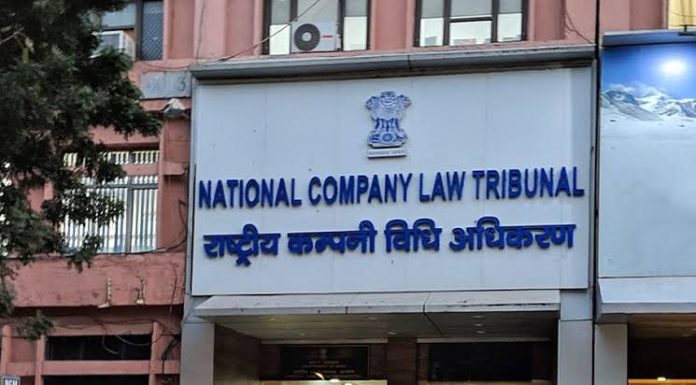The Chennai Bench of the National Company Law Appellate Tribunal has refused to consider as certified copy, a free-of-cost copy of the final order sent by the Registries of the National Company Law Tribunal for filing an appeal before NCLAT.
The Bench comprising judicial members Justice M Venugopal and Justice Sharad Kumar Sharma, along with technical member Jatindranath Swain of NCLAT, ruled on March 15 that the ‘free of cost’ copy of the final order sent by the NCLT Registry in compliance with NCLT Rules, was not a ‘certified copy’ of the order for filing an appeal.
It said that a mere running of the eye over Rule 50 of the National Company Law Tribunal Rules, 2016 clearly pointed out that the application of the petitioner/appellant to comply with a certified copy by paying the schedule of fees cannot be dispensed with and at best, the sending of the certified copy of final order by the authorities concerned, free of cost, was an obligation caused upon the Office of the NCLT Registry, as per the National Company Law Tribunal Rules.
The receipt of the free-of-cost copy, received by the petitioner/appellant after recovering from illness, could not be a substitute for a certified copy of the impugned order, to accompany the appeal as per Rule 22(2) of the National Company Law Appellate Tribunal Rules, 2016, it noted.
The Bench passed the order on an appeal filed by one Munagala Roja Harsha Vardhini (appellant) against a November 2022 order of NCLT.
The appellant claimed that on December 7, 2022, he received a free-of-cost certified copy of the NCLT order passed on November 24, 2022.
On January 19, 2023, he filed an appeal before the NCLAT Chennai against the NCLT order. He also filed an application for condonation of delay under Section 61(2) of IBC along with such appeal.
Section 61(2) of IBC provided a period of 30 days for filing an appeal against the order of NCLT. The proviso to Section 61(2) of IBC said that the NCLAT may allow an appeal beyond 30 days, by a maximum of 15 days, on demonstration of sufficient cause for the delay.
The appellant argued that the limitation period of 30 days to file the appeal should be calculated from the date he received the certified copy from the Registry, which was December 7, 2023. Therefore, the limitation period will end on January 6, 2023 and hence, the appeal filed on January 19 was within the condonable limit of 45 days as per proviso, he argued.
The NCLAT, however, noted that the appellant did not apply for the certified copy of the NCLT order by paying fees as per Rule 50 of the National Company Law Appellate Tribunal Rules, 2016, which makes it mandatory for all parties to pay a fee for a certified order copy.
The tribunal held that irrespective of whether or not a party received the free order copy, the requirement imposed upon them under Rule 50 to apply for a certified copy by paying requisite fees ‘cannot be dispensed with’.
It said the free-of-cost copy of the final order was sent by the NCLT Registry to the parties in compliance with the NCLT Rules and such copy cannot be substituted for a certified copy.
Besides, the date of pronouncement of the order can only be the date on which the order was pronounced (November 24) and hence, the limitation to file such an appeal should be calculated from the date of pronouncement of such order and not the receipt of free of cost certified copy of the order, added NCLAT.
Regarding the 12-day delay as computed by the petitioner/appellant in her application, from the date of receipt of a free copy on December 7, 2022 cannot be accepted and as per Rule 150 of the National Company Law Tribunal Rules, 2016, the pronouncement date can only be the date on which the order was pronounced on November 24, 2022 by the Adjudicating Authority/Tribunal.
If calculated from the date on which the instant Appeal came to be filed through e-portal on January 19, 2023, the actual delay (after the expiry of 30 days in preferring an Appeal) would be 26 days. In all, there was a delay of 26 days, which was beyond the condonable period of being the outer limit, as provided under Section 61(2) of the Insolvency and Bankruptcy Code, 2016, it said.
The appellant was represented by Advocates TK Bhaskar, Mayan H Jain, Pranav Gopalakrishnan, and Niveditha Narayanan.
Advocates Chandra Mouli Prabhakar and Vandhana Prabhu appeared for the respondent.


